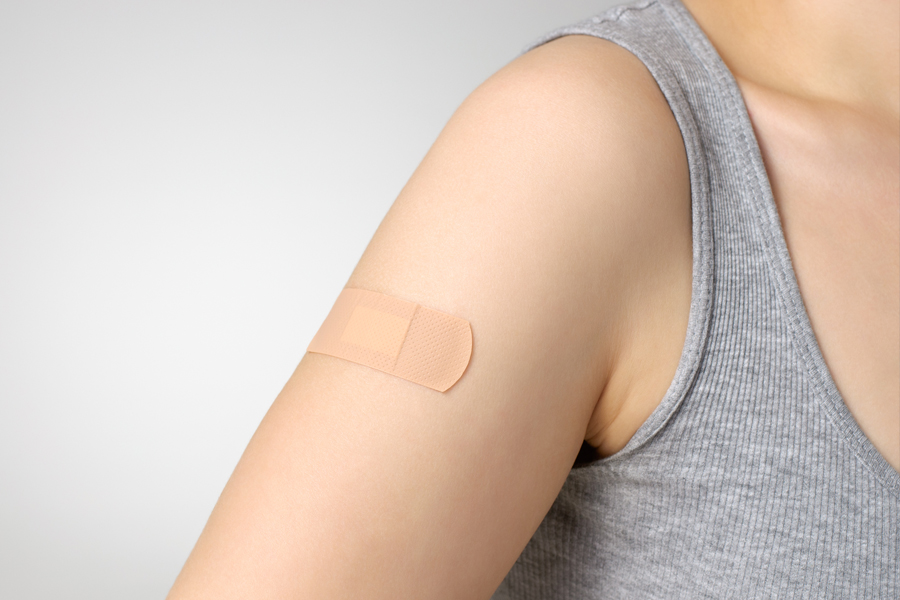This shot can prevent certain cancers.

The HPV vaccine is the first clinically proven vaccine that can prevent specific types of cancer caused by a human papillomavirus (HPV) infection.
HPV is a group of more than 100 similar viruses that cause most of the common sexually transmitted diseases in the world. A handful of these viruses are linked to six types of cancer:
- Cervical
- Vaginal
- Vulvar
- Anal
- Penile
- Oral (mouth/throat/tongue)
Many of these cancers have few early signs or symptoms. The HPV vaccine will protect you against the most common types of HPVs that are responsible for 80 percent of all cervical cancers and 90 percent of all genital warts, which can cause cancer later in life if left untreated.
The vaccine is safe and has been available for more than 10 years. Still, not everyone has received the vaccine or is aware of its role in cancer prevention.
Why you? Why now?
- Who should get the vaccine?
-
Vaccinations can begin as early as age 9, although the American Academy of Pediatrics recommends the vaccine for children (boys and girls) who are 11 or 12 years old.
The earlier the vaccine series is started, the fewer the number of injections. That means if the vaccine series is started before the age of 15, it requires two injections given over six months. If the series is started when a child is older than 15, it will require three injections over a period of time.
Ideally, the vaccine should be given before you become sexually active. If a teen or young adult already has had sex or been diagnosed with an HPV infection, he or she should still get the vaccine. That’s because they may not have been exposed to all of the HPV types that are covered by the vaccine.
The National Cancer Institute, along with the Centers for Disease Control and Prevention, the American Cancer Society, the American Academy of Family Physicians, and the American Academy of Pediatrics strongly recommend that all children receive the HPV vaccine.
- Iowans have a need for concern.
-
Only 38 percent of Iowa children between 13 and 15 have received the full HPV vaccine, according to 2017 statistics, the most recent available. Nationally, nearly 49 percent of teens have been immunized. More than 80 million doses of HPV vaccine have been given in the United States to date.
Holden Comprehensive Cancer Center, Iowa’s only NCI-designated cancer center, joins cancer centers across the country to raise the vaccination rate to 80 percent within the coming years. Our researchers are actively exploring how best to convince parents to consent to this safe and effective means to minimize a cancer risk for their children.
